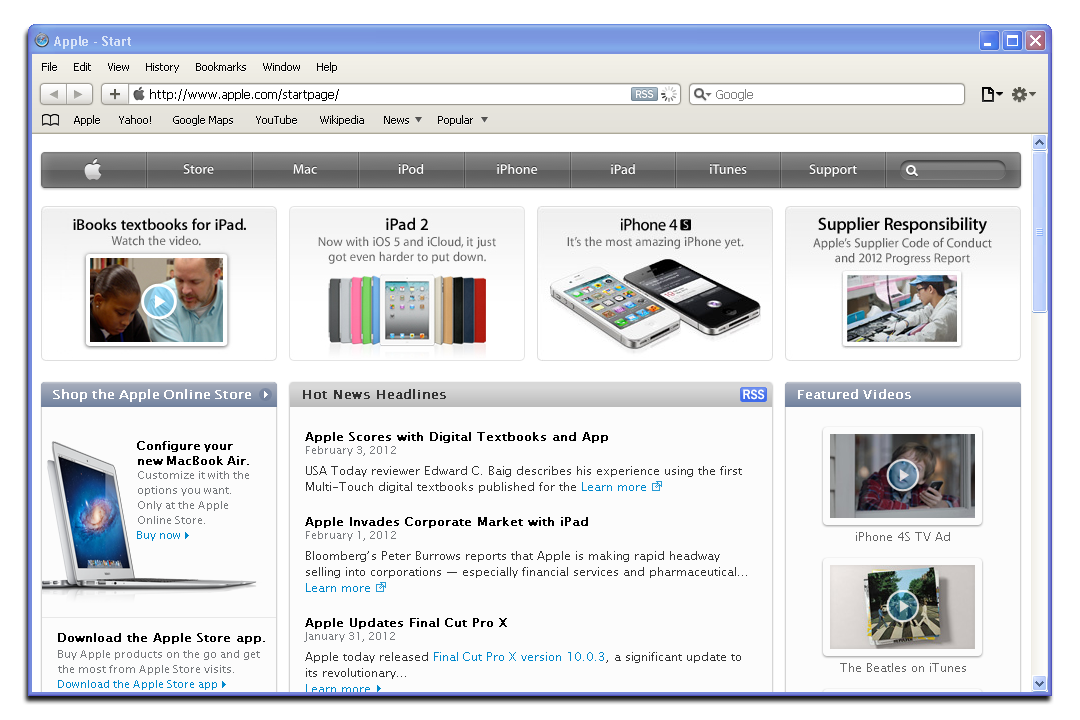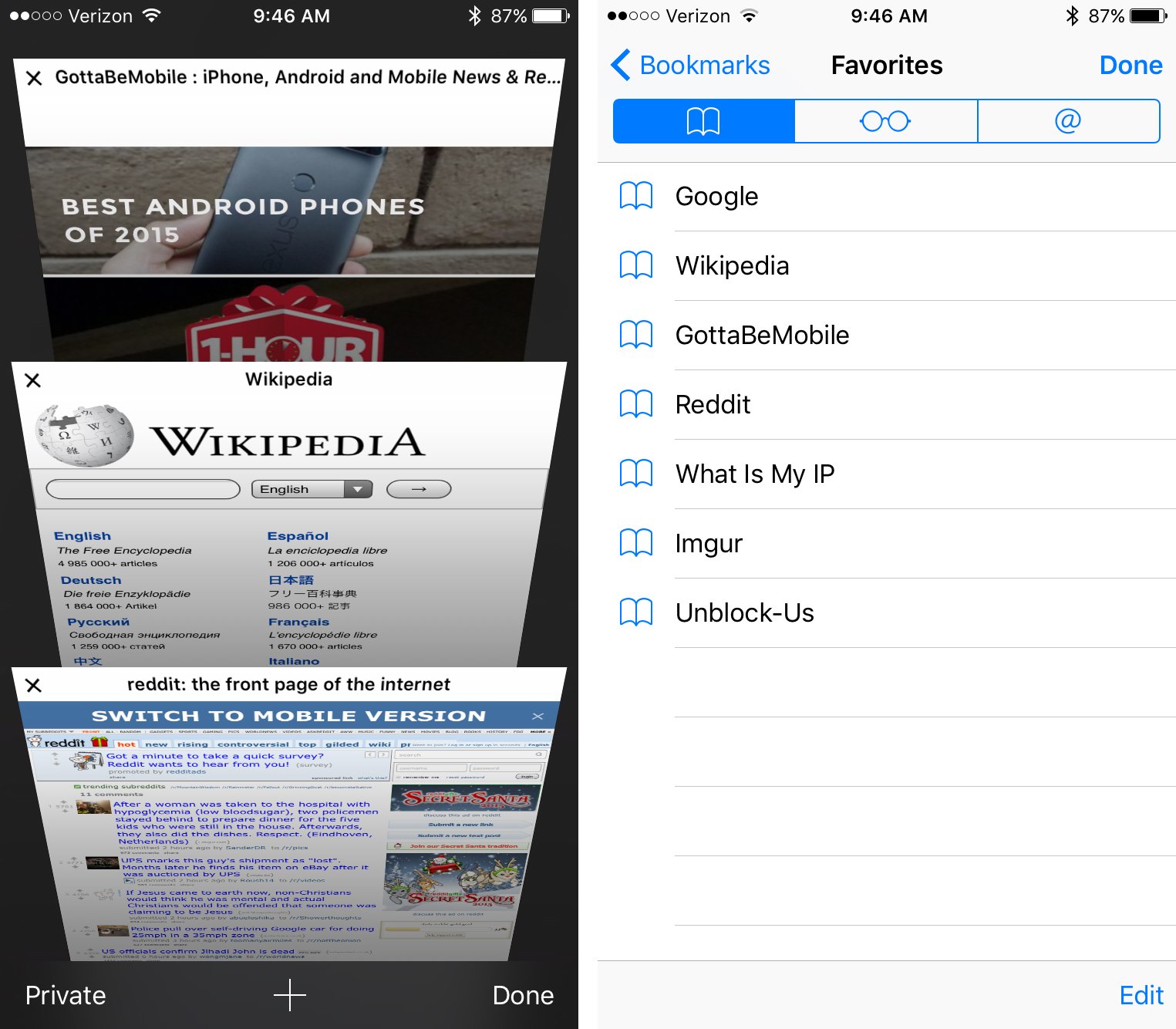

- #Apple safari web runs risk becoming mac os x#
- #Apple safari web runs risk becoming software#
- #Apple safari web runs risk becoming Pc#
- #Apple safari web runs risk becoming windows#

Apple went through its near-death experience, and Adobe was drawn to the corporate market with their Acrobat products. "Since that golden era, the companies have grown apart. Although Apple and Adobe still have many joint customers in that design arena, the days of the close alliance are over, Jobs said. The latest letter recounts some history when Apple and Adobe jointly built the desktop-publishing industry. In 2007, for instance, he wrote about Apple and the environment, and about copy-protected music. Jobs' open letters are unusual but not unknown.
#Apple safari web runs risk becoming mac os x#
In addition, Flash Player 10.1 adds support for multitouch, and a new Flash Player 10.1 beta can take advantage of Mac OS X hardware acceleration for playing videos encoded with the H.264 technology. "We cannot be at the mercy of a third party deciding if and when they will make our enhancements available to our developers."Īdobe is working to improve Flash, notably on the Mac, where the company has acknowledged its performance lags. If developers grow dependent on third-party development libraries and tools, they can only take advantage of platform enhancements if and when the third party chooses to adopt the new features," Jobs said.
#Apple safari web runs risk becoming software#
"We know from painful experience that letting a third-party layer of software come between the platform and the developer ultimately results in substandard apps, and hinders the enhancement and progress of the platform. The most important, he said, is that Apple refuses to be beholden to another organization's programming foundation. Jobs struck back against Adobe's protestations with a list of six reasons Apple is opposed to Flash. Apple's move comes as a collection of Web technologies-HTML retooled for applications, Cascading Style Sheets for better formatting, faster JavaScript for running Web-based programs-are coalescing into a more viable replacement for today's Flash. Adobe has been increasingly vocal about its dissatisfaction with the Apple situation, especially after Apple barred a new tool from Adobe that would let Flash developers turn their programs into native iPhone applications.Ī chief benefit of Flash is its cross-platform design that lets programmers reach a multitude of devices easily, but missing some of the highest-profile mobile devices on the market-the iPhone, iPad, and iPod Touch-weakens the Flash sales pitch.
#Apple safari web runs risk becoming windows#
The software is designed to work on phones using RIM's BlackBerry OS, Microsoft's Windows Phone 7, Palm's WebOS, Nokia's Symbian, and Google's Android. Narayen also turned around Jobs' complaint about Flash causing Mac crashes, pinning the blame on Mac OS X, and said Jobs' complaints about Flash draining batteries fast are "patently false." In addition, where Jobs complained of Flash shortcomings, "for every one of these accusations made there is proprietary lock-in" that block Adobe from fixing it.įlash Player, a programming foundation that's ubiquitous on personal computers, is widely used for tasks such as online games, photo editors, and video streaming, and with the upcoming version 10.1, Adobe is trying anew to bring Flash to mobile devices. That there are more than 100 applications available today built with Adobe's tool to translate Flash apps into native iPhone apps shows Apple's objections have "nothing to do with technology." Overall, his message is this: Flash is flawed, Apple doesn't need it, and the company is using its considerable power and influence to make it obsolete.Īdobe CEO Shantanu Narayen called Jobs' letter a "smokescreen" in an interview with The Wall Street Journal. Jobs also knocked Flash for being proprietary, sapping battery power, not supporting multitouch interfaces, posing security risks, and being unstable. Perhaps Adobe should focus more on creating great HTML5 tools for the future, and less on criticizing Apple for leaving the past behind." "New open standards created in the mobile era, such as HTML5, will win on mobile devices (and PCs too).
#Apple safari web runs risk becoming Pc#
"Flash was created during the PC era-for PCs and mice," Jobs said in the letter. In a rare open letter published Thursday, Apple Chief Executive Steve Jobs has detailed the technological reasons behind his company's refusal to let Adobe Systems' Flash Player onto the iPhone: he thinks it's a relic, not the future.


 0 kommentar(er)
0 kommentar(er)
